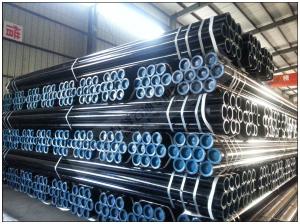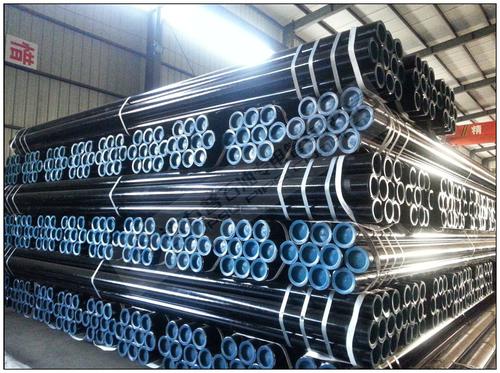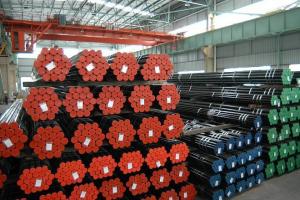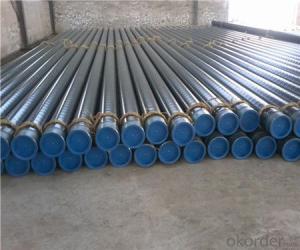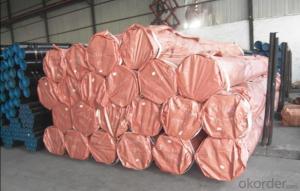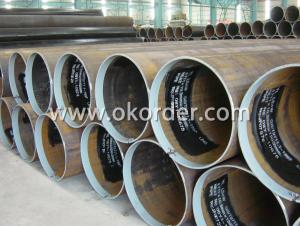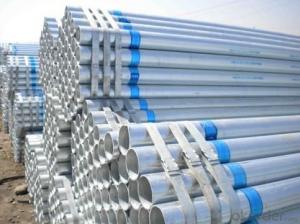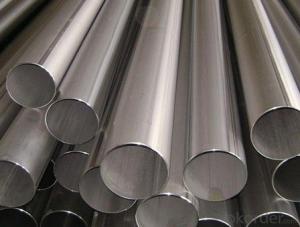Seamless Steel Pipe API 5L
- Loading Port:
- Tianjin
- Payment Terms:
- TT OR LC
- Min Order Qty:
- -
- Supply Capability:
- 20000ton m.t./month
OKorder Service Pledge
OKorder Financial Service
You Might Also Like
Seamless Steel Pipe API 5L
Product Descriptions : Carbon Seamless Steel Pipe
1.O.D:13.7mm~610mm
2.W.T:2.34mm~30mm
3.Length:5-12m
4.Certificate:API 5L,BV
WE SHALL DO OUR BEST TO OFFER YOU THE HIGH QUALITY PRDUCTS, THE MOST FAVOURABLE PRICE AND THE BEST SERVICE. LOOKING FORWARD TO YOUR INQUIRY.
| 1.COMMODITY NAME | Carbon Seamless Steel Pipe |
| 2.STANDARD | ASTM A106,ASTM A53,API 5L,ASTM A179 BS1387 GB/T8162-2008,GB/T8163-2008 A335 |
| 3.MATERIAL | API 5L X42,X52,X56,X60,X70 |
| 4.OUTER DIAMETER | 13.7-610MM |
| 5.WALL THICKNESS | 2.34-30MM |
| 6.LENGTH | 5.8-12M |
| 7.DELIVERY TIME | 20-30 DAYS AFTER SIGNING THE CONTRACT OR AS CUSTOMER' DEMAND |
| 8.BOTH OF ENDS | PLAIN ENDS OR BEVELED ENDS,PROTECTING CAPS |
| 9.PAKCING | IN BUNDLES TIED WITH STEEL STRIPS |
| 10.APPLICATION | A.CARRYING GAS,WATER OR OIL IN THE INDUSTRIES OF PETROLEUM AND NATURAL GAS B.FOR REFINERY,HEAT-EXCHANGING PIPE OR PIPELINE C.FOR HIGH-PRESSURE BOILER D.BUILDING-SHIP AND OVER-HEATE |
| 11.THE THIRD PARTY INSPECTION | SGS, BV OR AS CUSTOMER'S DEMAND |
| 12.PROCESS TECHLONOGY | COLD-DRAWN,HOT-EXPANDED,HOT-ROLLED |
| 13.CERTIFICATE | API 5L,API 5CT,ISO |
Dalipal Company is one of the most famous enterprises of china professionally producing pipeline and oil casing.We can supply API 5CT series of pipeline and oil casing with all kinds of specifications and materials.We have first-class production equipment and technology.
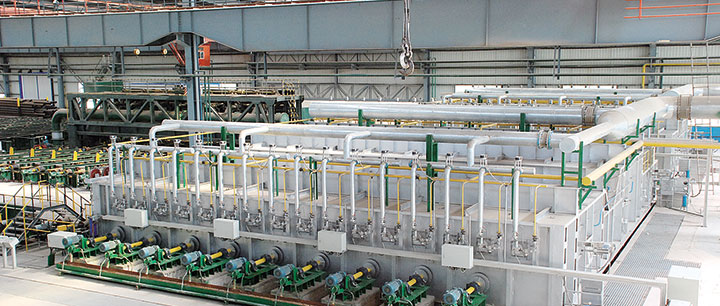
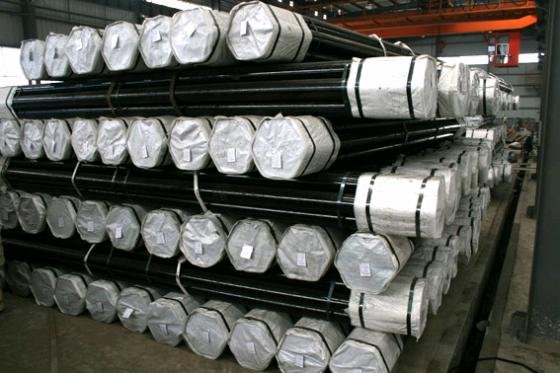
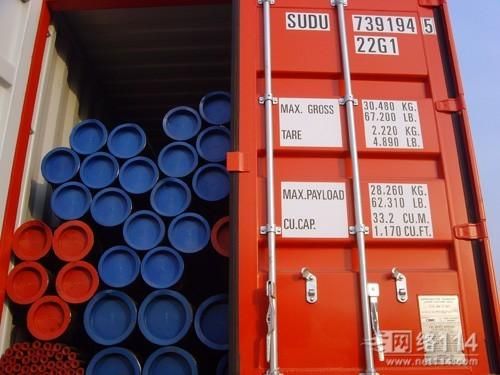
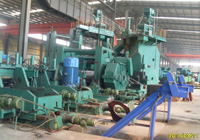
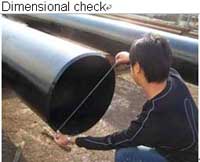
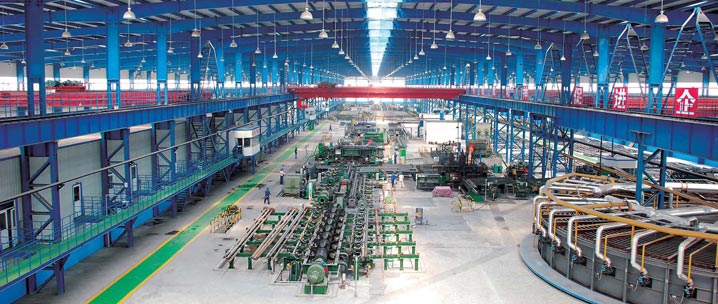
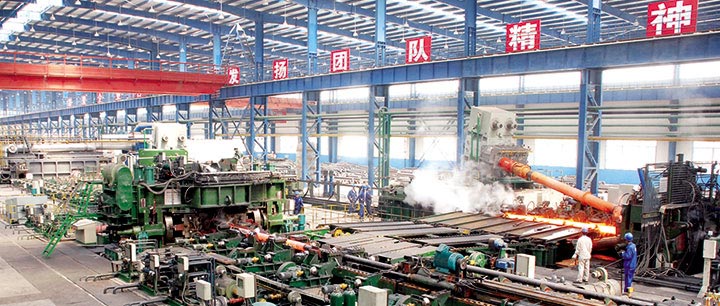
- Q: How does the price of steel pipes vary based on size and grade?
- The price of steel pipes varies based on their size and grade. Generally, larger pipes tend to have higher prices due to the increased amount of materials and manufacturing processes involved. Additionally, the grade of steel used in the pipes also affects the price, with higher-grade steel pipes being more expensive. This is because higher-grade steel offers better strength, durability, and corrosion resistance, making it suitable for specialized applications. Therefore, the price of steel pipes increases as both the size and grade increase.
- Q: What is the compressive strength of steel pipes?
- The compressive strength of steel pipes can vary depending on the specific grade and manufacturing process, but it is generally high. On average, steel pipes have a compressive strength ranging from 60,000 to 120,000 pounds per square inch (psi).
- Q: How are steel pipes affected by international trade policies?
- Steel pipes can be significantly affected by international trade policies. For instance, trade barriers such as tariffs or quotas can increase the cost of importing steel pipes, making them less competitive compared to domestically produced pipes. Conversely, liberalized trade policies can enhance market access for steel pipe exporters, allowing them to expand their market share globally. Overall, the impact of international trade policies on steel pipes depends on the specific policies implemented and their effect on the cost, availability, and competitiveness of these products in the international market.
- Q: How do you calculate the pipe pressure drop for steel pipes?
- To determine the pressure drop in steel pipes, there are two equations that can be utilized: the Darcy-Weisbach equation and the Hazen-Williams equation. The Darcy-Weisbach equation, although more precise, necessitates a greater amount of information. It takes into consideration the diameter, length, roughness, fluid flow rate, as well as fluid properties like viscosity and density. The equation is expressed as: To calculate the pressure drop (ΔP), the following formula can be used: (f * L * ρ * V^2) / (2 * D) In this formula: - ΔP denotes the pressure drop - f represents the friction factor (which can be determined using Moody's chart or empirical equations such as the Colebrook-White equation) - L signifies the length of the pipe - ρ denotes the fluid density - V represents the fluid velocity - D signifies the pipe diameter On the other hand, the Hazen-Williams equation is a simplified version commonly employed for water flow calculations. Although less accurate, it is more user-friendly. The equation is expressed as: To calculate the pressure drop (ΔP), the following formula can be used: K * Q^1.85 / (C^1.85 * d^4.87) In this formula: - ΔP denotes the pressure drop - K signifies the Hazen-Williams coefficient (which relies on the pipe material and roughness) - Q represents the flow rate - C signifies the Hazen-Williams roughness coefficient - d denotes the pipe diameter It is crucial to note that these equations provide estimations of the pressure drop, and actual conditions may vary due to factors such as fittings, bends, and valves in the pipe system. Furthermore, consistency in unit usage (e.g., SI units or US customary units) is of utmost importance when employing these equations.
- Q: Are steel pipes suitable for potable water applications?
- Yes, steel pipes are suitable for potable water applications. Steel pipes are commonly used for transporting water in various industries and municipal water systems. They are known for their durability, strength, and resistance to corrosion, making them a reliable choice for potable water systems. Steel pipes also have the advantage of being able to withstand high pressure and temperature conditions, making them suitable for both hot and cold water applications. Additionally, steel pipes can be easily welded, ensuring leak-free connections. However, it is important to note that the quality of the steel used and proper maintenance are crucial factors in ensuring the safety and suitability of steel pipes for potable water applications. Regular inspection and maintenance should be done to prevent corrosion and ensure the integrity of the pipes.
- Q: How do you transport and store steel pipes?
- Steel pipes are typically transported using trucks, railcars, or ships. They are stored in designated areas or warehouses, either vertically or horizontally depending on their size and weight. It is important to ensure proper packaging, lifting equipment, and securing methods during transport to prevent damage or accidents. Additionally, storing steel pipes in dry, well-ventilated areas away from moisture and corrosive substances helps maintain their quality and longevity.
- Q: How do you calculate the thermal expansion of steel pipes?
- In order to determine the thermal expansion of steel pipes, it is necessary to utilize the coefficient of thermal expansion (CTE) specific to steel. The CTE represents the extent to which a material expands or contracts in response to temperature fluctuations. Typically, the average value of CTE for steel is around 12 x 10^-6 per degree Celsius (12 μm/m°C). To calculate the thermal expansion of a steel pipe, one must possess knowledge of the pipe's initial length (L0), the temperature change (ΔT), and the CTE for steel. The formula for calculating thermal expansion is as follows: ΔL = L0 * CTE * ΔT In this equation: ΔL denotes the alteration in length of the steel pipe L0 represents the initial length of the steel pipe CTE signifies the coefficient of thermal expansion for steel ΔT indicates the change in temperature For instance, suppose there is a steel pipe with an initial length of 2 meters (L0), and the temperature rises by 50 degrees Celsius (ΔT). The CTE for steel is 12 x 10^-6 per degree Celsius. ΔL = 2m * 12 x 10^-6/°C * 50°C ΔL = 0.00024m/m°C * 50°C ΔL = 0.012m Thus, when the temperature increases by 50 degrees Celsius, the steel pipe will expand by 0.012 meters or 12 millimeters. It is important to bear in mind that this calculation assumes linear expansion, which is applicable for minor temperature variations. However, for larger temperature differences or more intricate pipe systems, a more comprehensive analysis may be necessary to consider factors such as the material properties, geometry, and thermal boundary conditions of the pipes.
- Q: What is the difference between black steel pipe and galvanized steel pipe?
- The main difference between black steel pipe and galvanized steel pipe lies in their coating. Black steel pipe is untreated and has a dark, matte appearance, while galvanized steel pipe is coated with a layer of zinc to prevent rusting and has a silver, shiny appearance. This coating makes galvanized steel pipes more durable and suitable for outdoor use, while black steel pipes are commonly used for indoor plumbing and gas lines.
- Q: How are steel pipes used in HVAC systems?
- Steel pipes are commonly used in HVAC systems for various purposes. They are used for transporting fluids such as water, steam, and refrigerant throughout the system. These pipes are durable and resistant to high temperatures and pressures, making them suitable for the demanding conditions of HVAC applications. They are used for distributing and circulating the heated or cooled air, as well as for connecting different components of the system, including boilers, chillers, heat exchangers, and air handlers. Additionally, steel pipes are often used for ventilation and exhaust purposes in HVAC systems.
- Q: How are steel pipes protected against corrosion in marine environments?
- Steel pipes are protected against corrosion in marine environments through various methods such as applying protective coatings, using cathodic protection systems, and employing sacrificial anodes. These measures create a barrier between the pipe surface and the corrosive elements in the marine environment, thereby increasing the lifespan and integrity of the pipes.
Send your message to us
Seamless Steel Pipe API 5L
- Loading Port:
- Tianjin
- Payment Terms:
- TT OR LC
- Min Order Qty:
- -
- Supply Capability:
- 20000ton m.t./month
OKorder Service Pledge
OKorder Financial Service
Similar products
Hot products
Hot Searches
Related keywords
